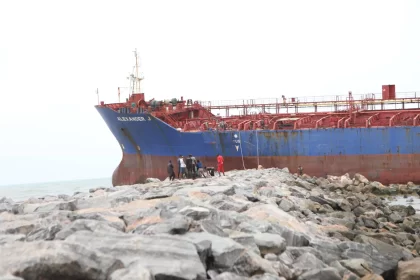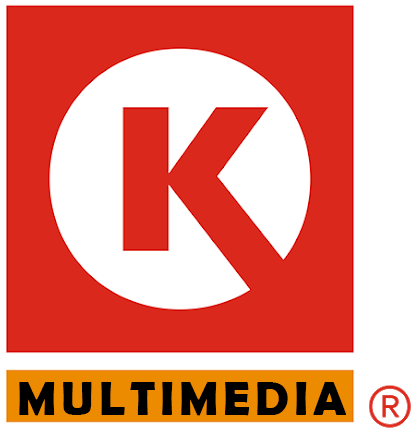
ThisDAY discovered on Monday that Nigeria is losing a significant amount of money from the operations of enterprises along the Excravos water channel as a result of the silt buildup on the waterway, which impedes the smooth passage of vessels.
The Nigerian Ports Authority (NPA), a federal government organisation that oversees activities in the Warri axis of Delta state, has been tardy to file documentation for the “desilting” of the channel, which has made the situation worse.
ThisDAY was informed by sources that numerous boats had been running aground in the channel, adding to the chaos as the NPA, which is supposed to maintain the orderly passage of boats through the region, has mainly abdicated its duty.
The 57-kilometer Escravos Channel, which empties into the Atlantic Ocean off the coast of Guinea, is a vital waterway for ships.
There are usually several users on this channel, which grants access to the Warri port. Additionally, tankers that supply the nation with Premium Motor Spirit (PMS) can access this channel.
“NNPC is an important user because those are their commissioned tankers. In terms of the nation’s production of crude oil, some of the assets in the western Niger Delta corridor also transport crude oil from the fields to offshore locations for export by means of mid-range tankers that go via the channel.
“Now, this channel has become silted over time, as is common with nature.” According to a tug boat provider, “there has been a growing difficulty for vessels to navigate and once aground will require assistance to refloat with high-powered tug boats.”
ThisDAY investigations revealed that MV Adebomi 3, MT Matrix Triumph, MT Matrix Asa, and MV Zola—among the ocean-going vessels owned by Matrix Energy and other ship owners/charterers—had previously grounded within the same axis.
Further information revealed that because the channel’s maximum draft at high tide is only 6.2 meters, a lot of ships now frequently become stranded there, costing enormous sums of money in lost revenue as well as purchasing large machinery to tow the damaged boats.
These boats are believed to completely block the waterway before they are towed, preventing other boats from travelling the same path for up to ten days at a time and resulting in large financial losses.
In addition to the oil firms that use the route, such as Chevron and Shell, it was also thought that bulk products are moved by other local small-scale businesses along this line.
THISDAY has heard that users have demanded that NPA maintain tougher monitoring over draft regulations in order to prevent the occurrence of overloaded vessels blocking the channel, in order to maintain sanity on the water route while dredging is underway.
“You would expect that the responsible agency would ensure that it remains navigable because of its importance because these operators are providing a service, and they are supporting the country’ cash flow plans and revenue generation, whether through the production making its way to the terminals.
“But businesses are experiencing frustration and there’s a heightened sense of emergency to do something, anything at all, on that channel. There’s an agency there that governs or marshal out user rules and regulations.
“But you can imagine that people also play ‘try your luck’. They will load up their vessels, pass the acceptable rate for the draft, and will just try to see if they can find their way through. On the average, you could see vessels that are grounded for seven days or over 10 days.
“And what it means is that as soon as you have that, there are businesses that are suffering. There’s zero activity for the next seven days, and the ramifications or consequences is the inability to deliver service timely,” one user told THISDAY.
Another channel user added: “Every channel has a limit of six, seven, eight metres and there’s always a control tower that tells the vessels to come in at the right time, depending on their draft then.
“But what is happening now is that because that place is silted, and the chiefs in Abuja and Lagos are not making the right decisions, the harbour master in Warri and his team still give vessels green lights, even when he knows that their drafts are not accommodated by the channel.”
The user pointed out that once they get in there, they will run aground, then a tugboat will be sought to pull it out. About three days ago, he stated that there were three blockages, which had taken an average of eight to nine days to open up. It seems this is another business for tugboat vendors which the operators are wondering what the motive is.
“So, you can understand that business activity in that axis has crumbled. And this is where you have oil production and other activities. This is the channel. There are two channels in Warri. One is the Escravos channel. One is the Forcados channel. They’ve allowed the Forcados channel to silt a long time ago. So, that one is abandoned.
“Now, this one, if they allow it to go this way, it means that it will get to a point where they will even abandon any marine economic activity in the Warri axis as well,” the source added.
According to the source, it is expected that parties move to urgently resolve the business challenge that is currently impacting business activities in the Niger Delta.
“We all are aware these could be another issue that leads to not improving the commercial and business activity in the Niger Delta.
“It seems the issue today is because as usual in Nigeria, everybody wants his interest to be covered, reason it’s taking NPA time to close the dredging mobilisation for such a critical national interest (what could be termed a water gateway) to deteriorate.
“NPA, if needed should explore initiative to fast track, including seeking the support of the users who ordinarily pay for the use of the channels. This is like a toll highway, as such funding shouldn’t be an issue.
“Clearly, the impact of this on the PMS distribution in the country is obviously from the long queues. The impact on production shut-in is almost a billion dollar in this time of below par production and shortage of Foreign Exchange for the country ,not to mention the added cost to the business due to long waiting of vessels at the channel ,” THISDAY was told.
The fuel delivery problems got worse in May of this year when it was announced that seven daughter vessels carrying 150 million litres of gasoline had become stuck on the high seas near the Escravos channel.

